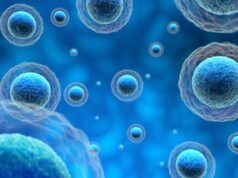In orthopaedics, the significance of nutritional supplements in enhancing bone healing and joint health is increasingly acknowledged. As the understanding of the connection between nutrition and musculoskeletal health deepens, certain nutrients have been identified as crucial for recovery and the maintenance of bone and joint integrity. Key nutrients that influence bone density, aid in fracture prevention, and support joint health are explored, along with their practical applications in orthopaedic surgery.
Essential Nutrients for Bone Health
Several nutrients are fundamental for bone health. Among them, calcium and vitamin D are paramount. Calcium serves as a crucial building block for bones, while vitamin D facilitates the absorption of calcium in the gut. Deficiencies in either nutrient can lead to weakened bone structures and conditions such as osteoporosis. According to the Mayo Clinic, adequate intake of these nutrients is essential for maintaining bone density and preventing fractures, particularly in individuals with osteoporosis.
Magnesium, vitamin K, and phosphorus also play supportive roles in bone health. Magnesium helps regulate calcium and vitamin D levels, while vitamin K is essential for bone mineralization. Phosphorus works in tandem with calcium to form hydroxyapatite, the mineral complex that gives bones their rigidity.
The Role of Collagen in Joint Health
Collagen, the primary structural protein in connective tissues, is vital for joint health. It provides the tensile strength and elasticity required for cartilage, ligaments, and tendons to function correctly. A review on collagen supplementation highlights its potential benefits for joint health, particularly in reducing pain and improving joint mobility. The bioavailability of collagen peptides and their ability to stimulate the synthesis of extracellular matrix proteins are crucial factors that contribute to these benefits.
Studies have shown that collagen supplements can help alleviate symptoms of osteoarthritis and other joint disorders by improving cartilage integrity and reducing inflammation. The supplementation of hydrolyzed collagen has been linked to a reduction in joint pain among athletes and older adults, suggesting its role in both preventive and therapeutic contexts.
Nutritional Factors in Bone Density and Fracture Risk
Nutritional status significantly influences bone density and the risk of stress fractures, especially in athletes. Research on young female cross-country runners has demonstrated that adequate intake of calcium and vitamin D is associated with higher bone mineral density and a lower incidence of stress fractures. This highlights the importance of nutrition in the context of high-impact sports and the prevention of bone-related injuries.
Moreover, the synergy between different nutrients is crucial. For instance, vitamin C enhances collagen synthesis, while zinc and copper are necessary for collagen cross-linking and bone tissue formation. A diet deficient in these nutrients can impair bone healing and increase susceptibility to fractures.
Practical Applications in Orthopaedic Surgery
In orthopaedic surgery, particularly in procedures like total hip arthroplasty (THA), the integration of nutritional strategies can enhance recovery outcomes. Understanding the acetabular anatomy and the fixation of screws during THA are crucial, but so is ensuring that patients have optimal nutritional status to support bone healing and integration of implants. Nutritional supplements can play a supportive role in accelerating recovery and improving surgical outcomes.For patients with osteochondral lesions of the talus, ensuring adequate nutrient intake can support the healing process and improve the management of these injuries. Nutritional support, including supplements, may help in the regeneration of cartilage and the overall recovery of joint function.
Sources
New Insights into Nutrients for Bone Health and Disease
Collagen Supplementation for Joint Health: The Link between Composition and Scientific Knowledge
Osteochondral lesions of the talus: aspects of current management
Acetabular anatomy and the transacetabular fixation of screws in total hip arthroplasty
Mayo Clinic Q and A: Osteoporosis and supplements for bone health





